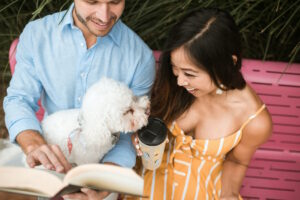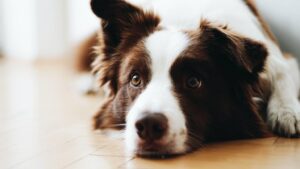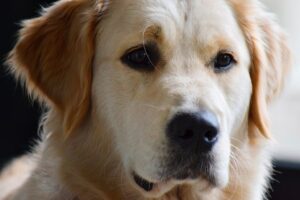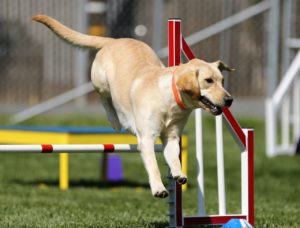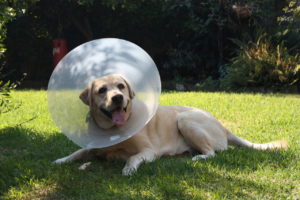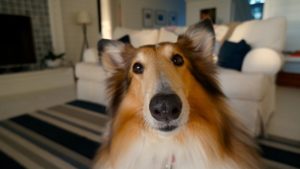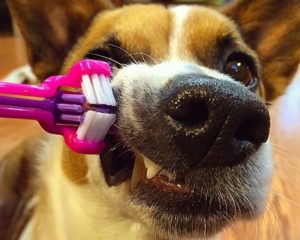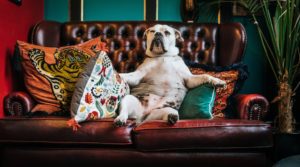Puppy potty training is just like any other kind of dog training. It requires patience and consistency. The goal of training your dog is to instil good habits and positive behaviour. But this is also the most effective way to deepen your loving bond and you can both enjoy this process.
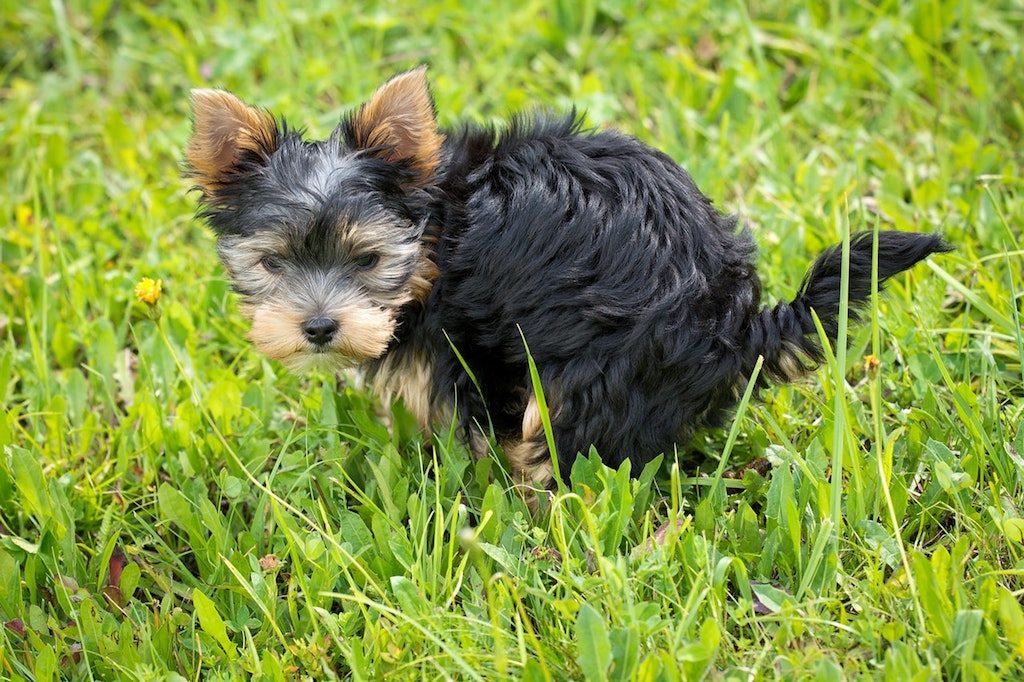
First, be prepared as puppy potty training can take quite some time. Second, don’t be discouraged by setbacks. They are bound to happen but their frequency will decrease over time, if you are persistent and stick to these rules. Third, for any kind of training to be effective, do not forget to reward your dog the same instant he or she gets it right.
Now, let’s see what are the best tips for an effective puppy potty training so you can go back to a pee-free home ASAP!
#1 Maintain a regular feeding schedule
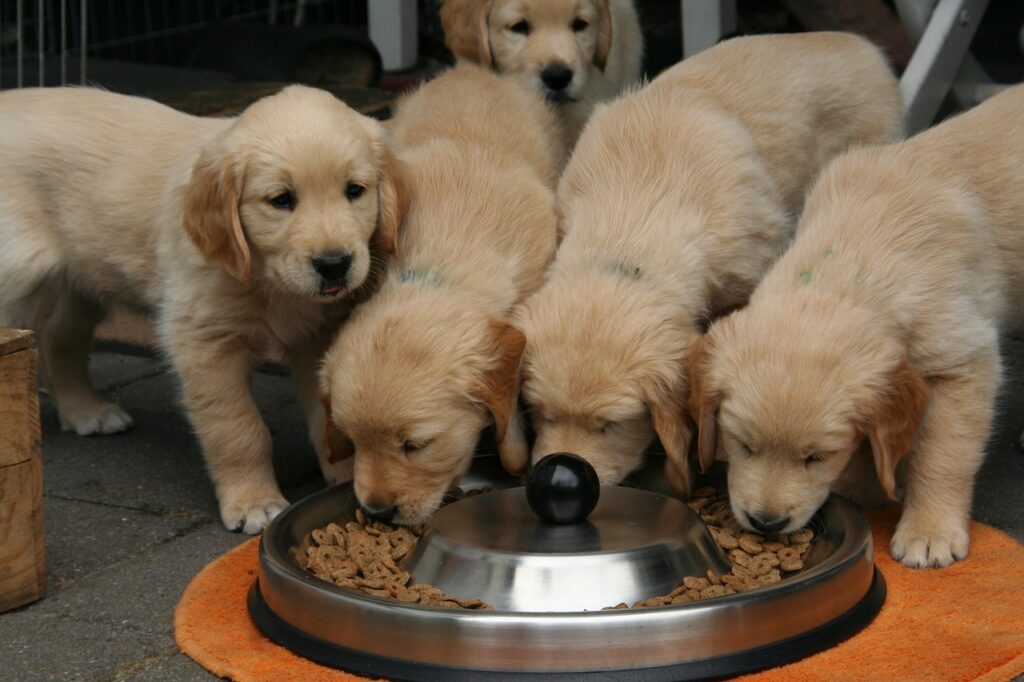
Just like our bodies appreciate a regular meal schedule (you’ve surely heard about the downsides of skipping breakfast!), your dog’s bowel movement also responds positively to punctuality, i.e. if you feed your dog at the same time each day. Puppies need to be fed more often than adult dogs which is a bit trickier for working owners. Try your best to make a schedule and stick to it.
Otherwise… picky eater danger on the horizon!
Most importantly, do not leave the food out as you don’t want your dog to become a picky eater. Leave it out for a few minutes and if left unattended, remove the bowl. Nothing bad can happen if your dog is hungry for a little while. Moreover, he will learn to appreciate the next meal. The bottom line is that any living creature’s bowels appreciate a regular meal schedule and it sure makes puppy potty training a lot easier so you can plan your walks ahead!
#2 Walking Schedule
Just like eating, you want your dog to know when to expect walks so it can adjust its bladder accordingly. Ideally, you should take your pup for a walk first thing in the morning and in the evening before going to sleep. During the training period, it is advisable to also take your dog out after naps and after each feeding. But most importantly – walk your pup before it is left home alone. This will decrease the odds of returning home to an unpleasant surprise! Likewise, it will also increase the likelihood of success of your puppy potty training scheme.
#3 Observe your dog’s behaviour
Take your dog out for a walk the second you notice he is about to go, i.e. sniffing around in order to find a spot. As time goes by, you will know exactly how your dog acts when he needs to go, believe it or not :)
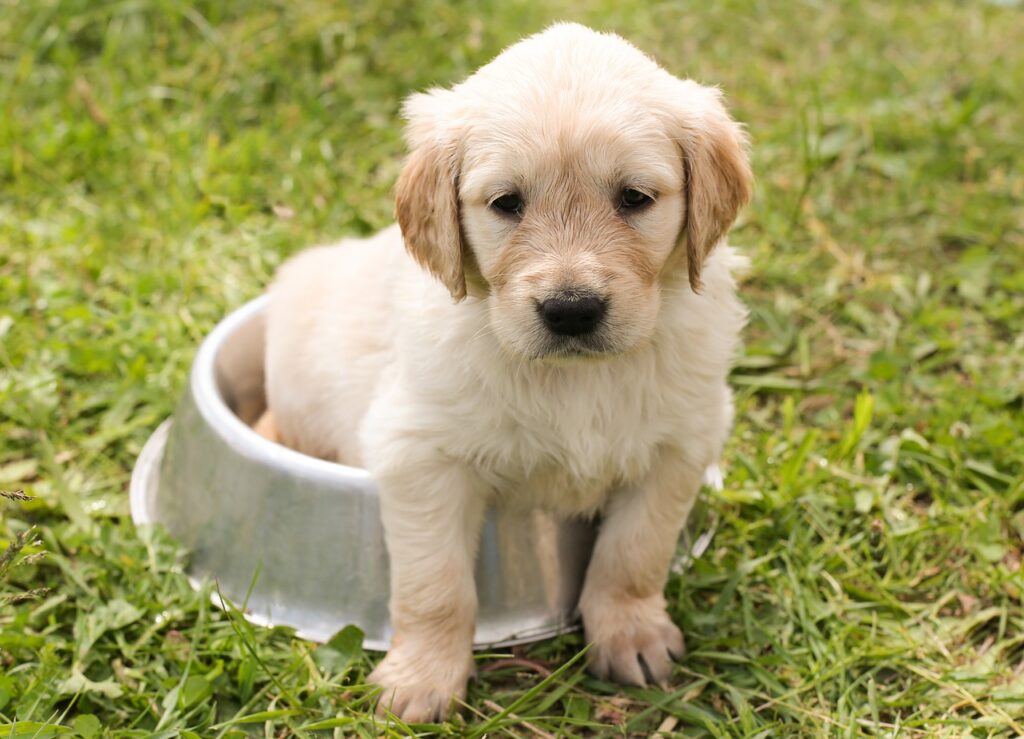
#4 Go to the SAME Spot
Once your puppy successfully finishes his business outside, make sure you take him to the same spot each time as it is more likely to connect the desired action to the spot in question. Don’t forget that dogs are scent creatures. Smell is a very powerful tool that enables your dog to learn about its environment and other dogs.
May the force (of smell) be with you…
Did you know that for example, if you take your dog out on the same route at different times of the day, this will be an entirely new experience for your furry best friend? Speaking of what dogs have that we don’t, well unlike us who have six million receptors, they have 300 million olfactory receptors in their noses. And the part of a dog’s brain that is devoted to analysing smells is 40 times greater than ours, proportionally speaking. So there’s literally a whole new world that we don’t know about! Use this knowledge to help your dog learn even faster! Use the power of smell to your advantage :)
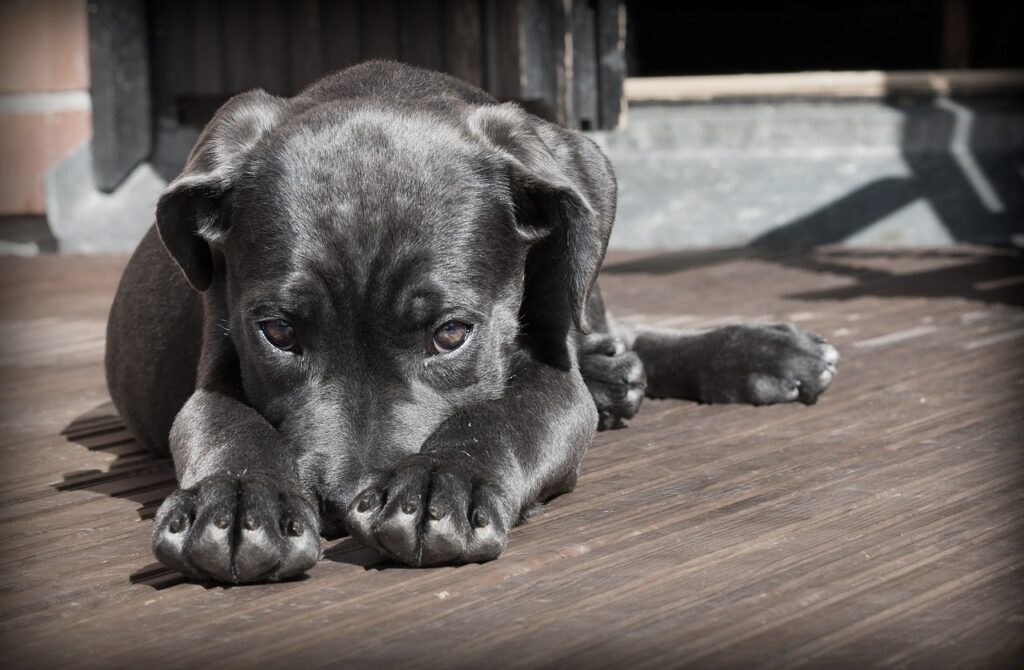
#5 Praise Desired Behaviour
Just like with training in general, praise and reward your dog immediately for successfully completing any task. Positive reinforcement can speed up the process quite a bit – there’s nothing dogs won’t do for a cookie :)
Your puppy’s previous living conditions are another factor so you might need to help your puppy break some old habits in order to establish new and desirable ones. There’s also a factor of size as smaller dogs have obviously smaller bowels that get full more quickly. Ultimately, how fast will your puppy learns to do its business only outside is an entirely individual matter. Whether your dog is a fast or not-so-fast learner can sometimes even be a matter of luck but lack of your patience and kindness can really make matters worse.
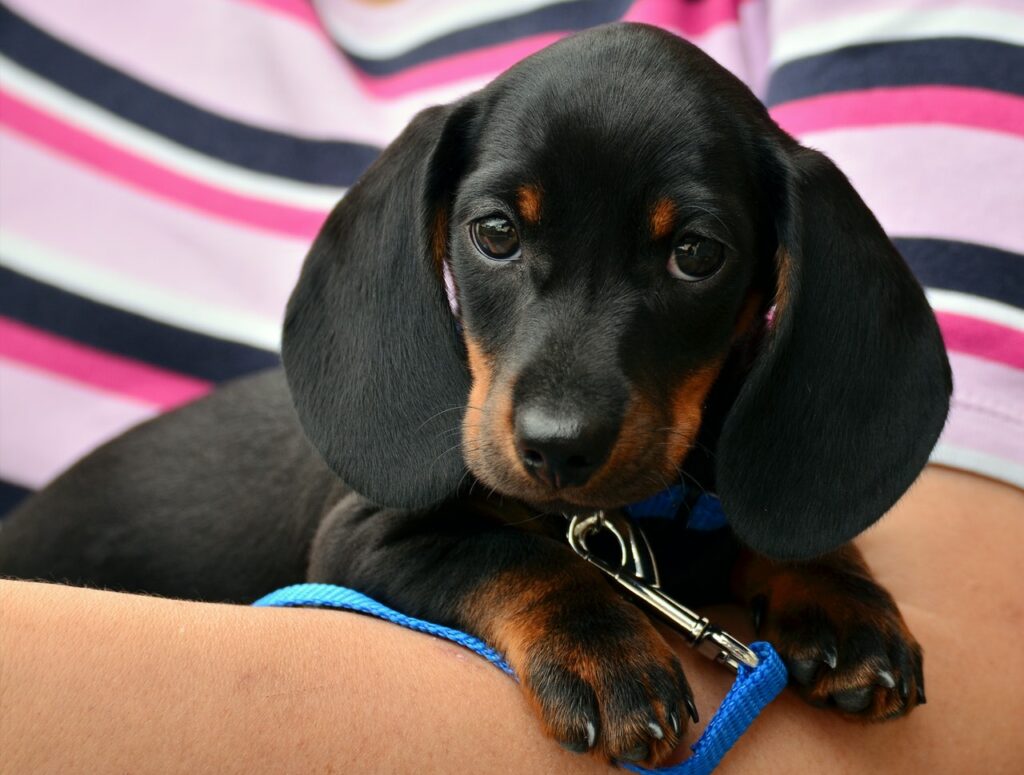
Use the help of training pads
Training pads exist for a reason and they can be of great help during the transitional period – as long as you don’t focus exclusively on them and neglect going outside. Some puppies get it immediately, some don’t. If your puppy is having trouble during its first few days, try putting a ton of training pads all over the room it is in, if not the entire flat/house! Then start narrowing the range to help him focus on the one spot – and ideally closer to the balcony, or whichever place you would like to place the pad for your puppy to do its business.
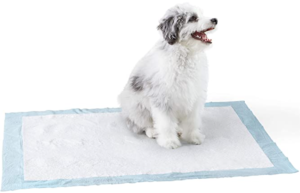
View on Amazon
Small hint though, pads usually have a plastic ‘frame’ around the paper, so if your dog chooses one of its angles, they will not absorb its pee and part of it will inevitably end on the floor. This is not your puppy’s fault and you should definitely not punish him for it, but reward and praise. The goal was the training pad – and your puppy got it right!
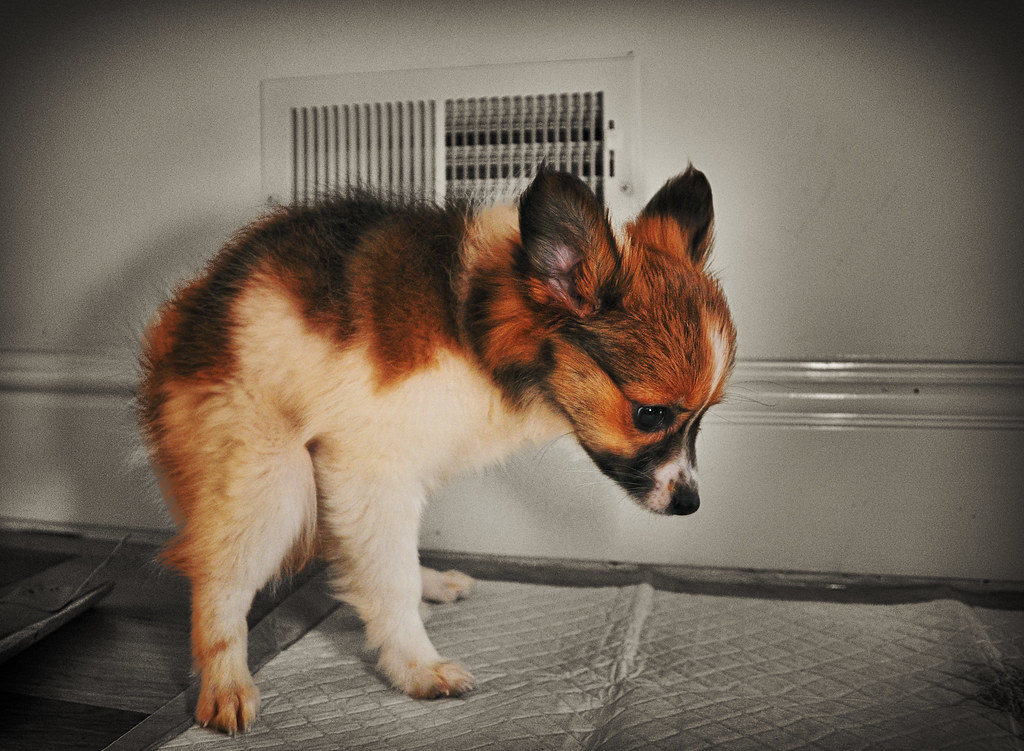
Do not forget about the “no-no-s” of puppy potty training!
Just think of a kid who is learning how to ride a bicycle. A critical parent who screams every time the child falls is not just unhelpful but can make some pretty nasty scars and not of the physical kind. Accidents are bound to happen until the puppy is one year-old – until he or she officially stops being a puppy!
Rule #1: No shouting
What you definitely should not do is scream at the poor little thing. This will only make your dog fear you – and supposedly, you did not get a pet for that reason! Authority is about being the Alpha leader of your pack, not about being feared. When there’s fear, there’s no room for love. And pretty much the whole idea about getting a dog is that whole unconditional love that everyone speaks about. Jealous like a dog, loyal as a dog – ring a bell? Just try clapping with your hands at a hint of undesired behaviour of any kind – it will eventually signal your dog to stop, without the unnecessary trauma.
Rule #2: If you see the end-result of the accident but not the act – do not react!
So you found evidence but did not witness the misdemeanour. There is literally no point in punishing the suspect, or better say, accused. Owners often make the mistake and drag their poor dogs to sniff what they have done. A puppy’s brain is entirely incapable of connecting these dots together, let alone your frustration and anger with the accident. As humans, we are the only creatures on Earth given the ability to self-reflect. You can say ‘go to your room and think about what you did’ to a child (and hope he gets it!). Dogs cannot about their actions. Also, they don’t have a legal system in place . A dog isn’t worried about how good it will score on its puppy potty training programme. Just do your best to follow the above advice for these unpleasant surprises to occur less often.
Rule #3 – Clean the crime scene
Going back to the power of scent, when the felony has been made, you don’t want your dog to remember that spot! So make sure to use cleaners that will really clean any scent residue. But choose wisely as you don’t want your dog sniffing chlorine, as toxic cleaners are often a source of allergy in dogs.
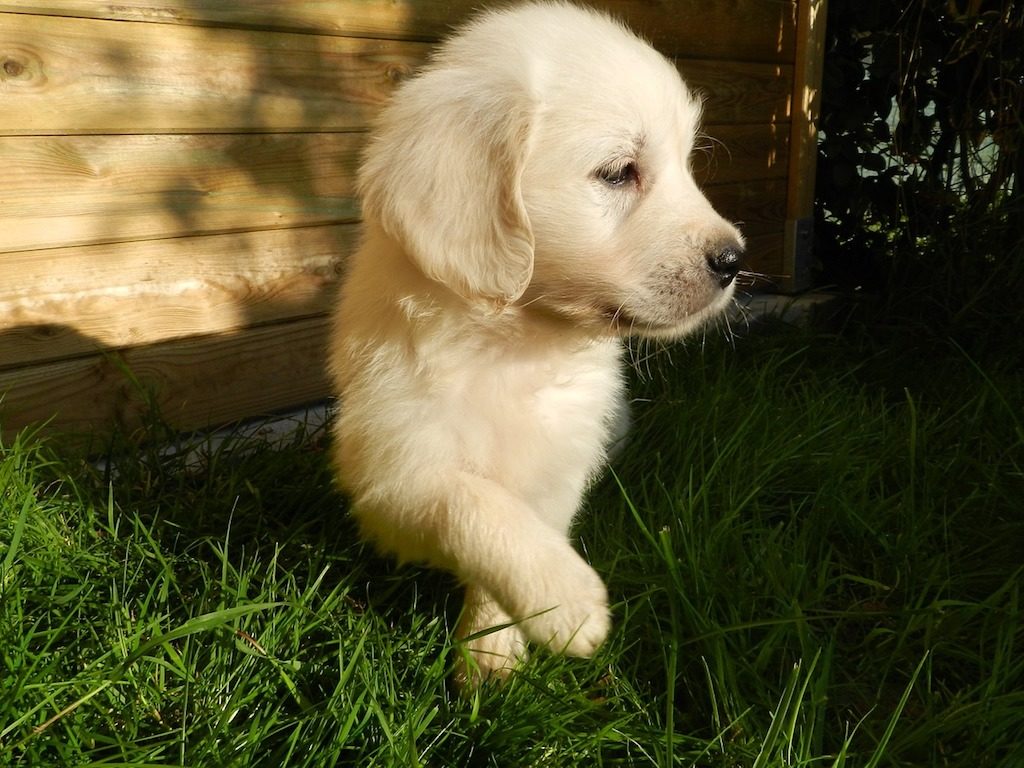
Make puppy potty training fun
It will surely take some time for your pup to be fully house-trained. But in the meantime, please don’t forget to play. Never ever forget that a happy dog is a well-exercised dog. Whenever you feel like ‘losing it’ as your floor or some of your furniture is bound to suffer at some point, just look at those ‘puppy eyes’. That expression was made for a reason. There is really nothing else but love in those eyes. As Echkart Tolle, the world-acknowledged spiritual teacher and guru explained, dogs are guardians of our being. Now what is a little material damage comparing to a treasury of spiritual wisdom and a kingdom of LOOOOVE that our pets give us! There is no comparison, is there…

